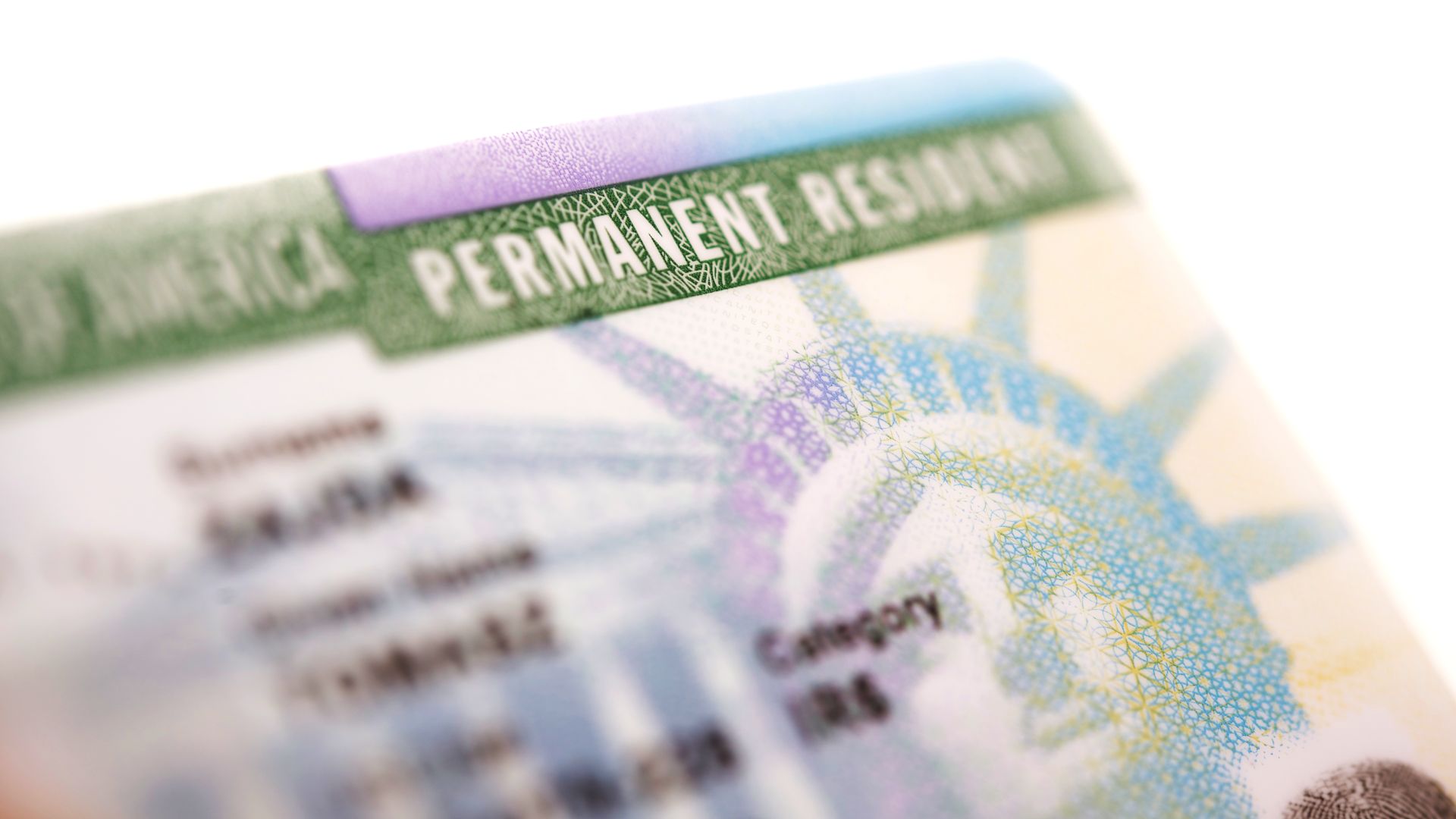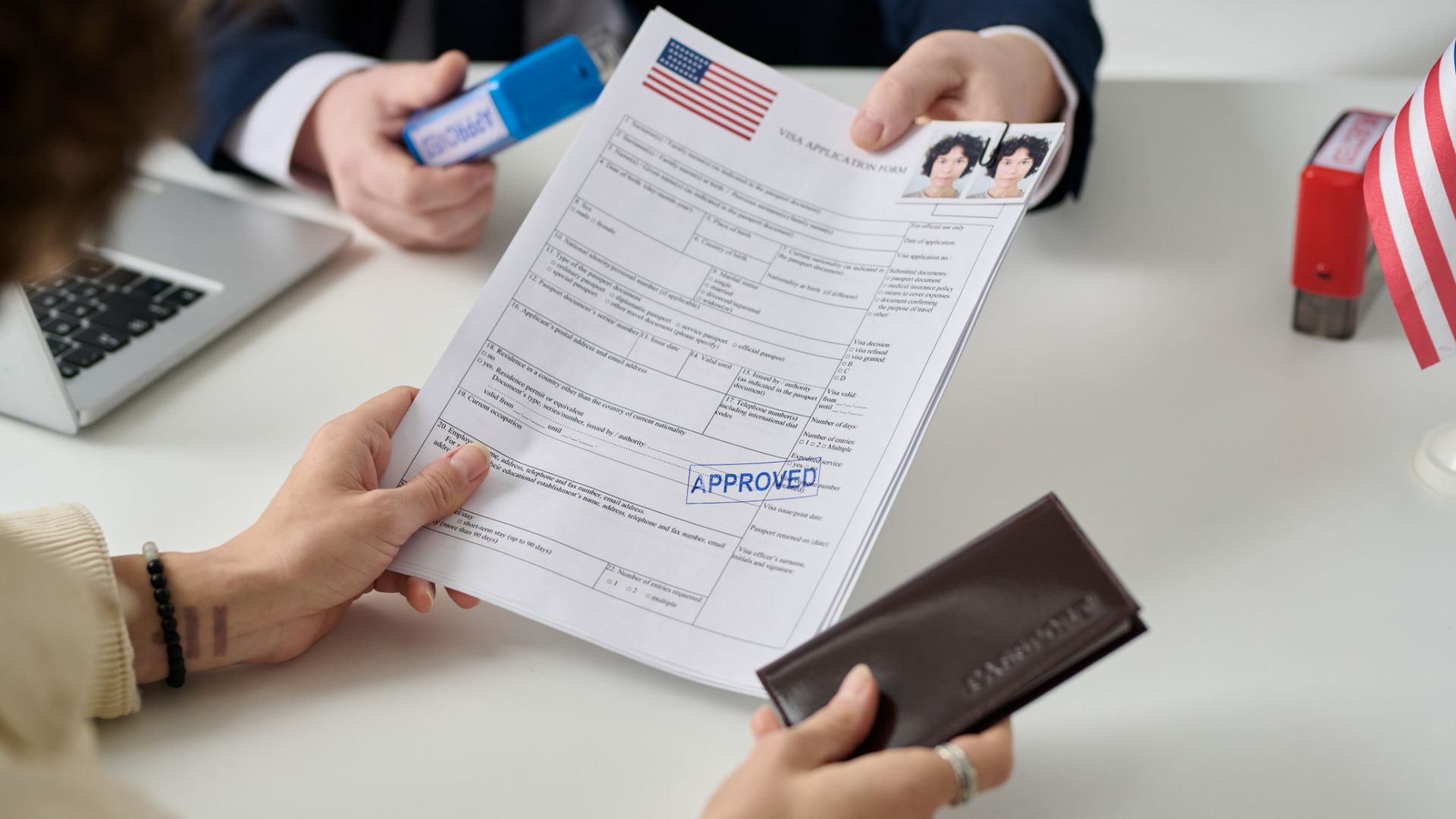For many immigrants, marriage to a U.S. citizen offers a potential pathway to lawful status, even if their initial visa has expired. However, there are complex rules, eligibility requirements, and consequences associated with visa overstays and marriage. This article aims to answer some of the most common questions immigrants have on this topic, clarify potential pathways, and highlight the importance of working with an experienced immigration attorney to secure the best possible outcome.
What Is Visa Overstay?
Visa overstay occurs when a foreign national enters the U.S. legally but remains in the country beyond the authorized period. Every visa has an expiration date, and overstaying beyond this period is a violation of U.S. immigration law. Overstaying a visa has serious consequences that may affect one’s ability to remain in or return to the United States.
The duration of the overstay can impact eligibility for certain immigration benefits and may even lead to bans from reentering the country. Here’s a breakdown of the consequences by the length of the overstay:
- Overstay of Less than 180 Days: No automatic penalties or bans for leaving the country, but the violation remains on record.
- Overstay Between 180 Days and One Year: This incurs a 3-year ban on reentry to the U.S. after leaving.
- Overstay of One Year or More: This incurs a 10-year ban on reentry after leaving the country.
If you’re married to a U.S. citizen or considering marriage, the next sections will guide you through how these factors affect your options and what legal pathways may be available.
Marriage to a U.S. Citizen: A Pathway to Adjustment of Status
For many immigrants who have overstayed their visa, marriage to a U.S. citizen provides one of the most viable paths to lawful status. In many cases, U.S. immigration law allows immigrants married to U.S. citizens to adjust their status, even if they initially overstayed their visa. This adjustment of status allows the immigrant to apply for a Green Card without leaving the country, potentially avoiding reentry bans.
1. Immediate Relatives of U.S. Citizens Have Unique Benefits
U.S. immigration law classifies spouses of U.S. citizens as “immediate relatives,” which gives them a priority status in the immigration process. Unlike other categories, immediate relatives of U.S. citizens are not subject to the same visa number limitations or long waiting periods. This unique status provides two major benefits:
- Waiver of Unlawful Presence: Spouses of U.S. citizens can apply for adjustment of status, even if they overstayed their visa. In these cases, unlawful presence within the U.S. may be “forgiven” as part of the adjustment process.
- Adjustment of Status Without Leaving the U.S.: An adjustment of status (AOS) application allows the spouse of a U.S. citizen to apply for a Green Card without having to leave the U.S. and apply for reentry.
However, the process is not automatic and does require careful attention to legal requirements and documents.
2. Eligibility Requirements for Adjustment of Status
If you are married to a U.S. citizen and have overstayed your visa, you may be eligible to adjust your status if you meet the following criteria:
- Entered the U.S. Legally: Generally, the immigrant must have entered the U.S. legally (i.e., with a visa or other entry documentation) to be eligible for adjustment of status.
- Current Marriage to a U.S. Citizen: This must be a legally valid marriage, and you may be asked to provide evidence to demonstrate the bona fides of your marriage (proof of genuine relationship).
- No Prior Removal Orders or Criminal Issues: Certain disqualifying criminal offenses or prior removal orders may complicate or impede the process. However, an immigration attorney can help you explore possible waivers or remedies for some of these issues.
Once these eligibility requirements are met, you can proceed with filing the relevant forms, including Form I-130 (Petition for Alien Relative) and Form I-485 (Application to Register Permanent Residence or Adjust Status).
Marriage to a U.S. Permanent Resident (Green Card Holder)
If your spouse is a lawful permanent resident (i.e., Green Card holder) rather than a U.S. citizen, the path to legal status can be more complicated. While marriage to a Green Card holder does not provide the same immediate benefits as marriage to a U.S. citizen, it may still offer options:
- Visa Availability: Spouses of Green Card holders fall under the “family preference” category, which is subject to annual limits on the number of visas issued. This means you may face a waiting period before you can adjust your status.
- Waivers for Overstay: If you have overstayed your visa, you may need a waiver of inadmissibility to adjust your status. However, obtaining this waiver can be complex, and it typically requires proving that your U.S. citizen or permanent resident spouse would suffer extreme hardship if you were denied the waiver.
In these situations, working with an immigration attorney is crucial, as they can assess your eligibility for a waiver and guide you through the process.
Key Documents Required for Adjustment of Status
The adjustment of status process requires comprehensive documentation to support your eligibility. Key documents include:
- Proof of Legal Entry: A copy of your visa, I-94 arrival/departure record, or other proof of lawful entry into the U.S.
- Marriage Certificate: Proof of your marriage to a U.S. citizen or permanent resident.
- Proof of Bona Fide Marriage: Evidence that your marriage is genuine, such as joint bank accounts, lease agreements, photos together, and affidavits from friends or family.
- Medical Examination: A medical exam from an authorized civil surgeon as part of the adjustment of status application.
- Proof of Identity: Copies of your passport, birth certificate, and other identification.
Gathering this documentation can be time-consuming, so starting early and working with an attorney will help ensure nothing critical is overlooked.
Special Considerations for Individuals with Complex Immigration Histories
If you have a history of immigration violations, prior removals, or significant criminal records, your adjustment of status process may require additional steps, such as:
- Waivers of Inadmissibility: For certain grounds of inadmissibility, such as unlawful presence or criminal history, you may need to apply for a waiver. This is a complex process that often requires demonstrating that your U.S. citizen or permanent resident spouse would suffer extreme hardship if the waiver were denied.
- Removal Proceedings: If you are currently in removal proceedings, you may still be able to apply for adjustment of status through “cancellation of removal” or other processes. In these cases, representation by an immigration attorney is essential, as these cases require appearing before an immigration judge and presenting a strong argument for relief.
Working with an Immigration Attorney
Navigating U.S. immigration law is rarely straightforward, and issues like visa overstay and marriage to a U.S. citizen or Green Card holder add layers of complexity. Working with an experienced immigration attorney can help you understand your eligibility, prepare documentation, and navigate challenges that may arise in the process.
An immigration attorney can help you:
- Assess Your Eligibility: Ensure that you meet all the requirements for adjustment of status.
- Prepare Your Application: Help you gather necessary documents and complete forms accurately to avoid delays.
- Handle Complications: Advise on waivers, respond to Requests for Evidence (RFEs), and assist if complications arise, such as prior removal orders or inadmissibility issues.
- Provide Representation: Represent you in any necessary hearings, including adjustment of status interviews or removal proceedings if they apply.
Frequently Asked Questions
Yes, if you entered the U.S. legally, you may be eligible to adjust your status to obtain a Green Card without having to leave the U.S. Overstays are typically “forgiven” for immediate relatives, which includes spouses of U.S. citizens.
What happens if I marry a U.S. citizen after my visa has expired?
Marrying a U.S. citizen may allow you to apply for adjustment of status, which can lead to lawful permanent residency (Green Card). The process requires specific forms and supporting documentation to show a bona fide marriage.
Can I get a Green Card if I overstayed my visa but am married to a permanent resident (Green Card holder)?
Possibly, but it’s more complex than with a U.S. citizen. You may need to wait for a visa number to become available and may require a waiver for the overstay.
Is my marriage considered valid if I married while overstaying my visa?
Yes, as long as the marriage is legally recognized by the state where it was performed and meets U.S. immigration standards as a bona fide (genuine) marriage, it is considered valid.
What documents are required for adjustment of status if I overstayed my visa and married a U.S. citizen?
You’ll need proof of legal entry, marriage certificate, bona fide marriage evidence, identity documents, financial support documents, and a medical examination report.
Will my visa overstay be forgiven if I am married to a U.S. citizen?
For immediate relatives of U.S. citizens, visa overstay is generally forgiven during the adjustment of status process. However, this may not apply if there are other complicating factors like prior removal orders.
How long does it take to get a Green Card through marriage if I overstayed my visa?
Processing times can vary but typically range from 12 to 24 months. Some cases may take longer, especially if additional evidence is requested or if complications arise.
What if I entered the U.S. illegally and married a U.S. citizen? Can I still get a Green Card?
Generally, you cannot adjust status from within the U.S. if you entered illegally. However, there may be other options, such as consular processing and waivers for unlawful presence.
Am I eligible for a work permit while my marriage-based Green Card application is pending?
Yes, once you submit your adjustment of status application, you can also apply for work authorization (Form I-765) and typically receive a work permit within a few months.
What is a waiver of inadmissibility, and do I need one if I overstayed my visa?
A waiver of inadmissibility is a form of relief for immigrants who are otherwise inadmissible due to immigration violations. If you are married to a U.S. citizen and overstayed, you likely won’t need it, but if you are married to a Green Card holder, you might need it.
What is the difference between marrying a U.S. citizen versus a Green Card holder if I overstayed my visa?
Marrying a U.S. citizen allows for immediate adjustment of status, while marrying a Green Card holder requires waiting for a visa number and, possibly, applying for a waiver.
Will overstaying my visa affect my ability to travel outside the U.S. while applying for a Green Card?
Yes. Leaving the U.S. after an overstay may trigger a 3- or 10-year reentry ban. However, you may apply for advance parole, which allows travel while the application is pending.
How can I prove that my marriage is genuine for immigration purposes?
You can provide evidence like joint bank accounts, lease agreements, utility bills, photos together, and affidavits from friends and family.
Can I apply for adjustment of status if I am currently in removal (deportation) proceedings?
Yes, but this requires additional steps, such as applying for “cancellation of removal.” You’ll need to work with an immigration attorney to present your case in immigration court.
Can I be deported if I am married to a U.S. citizen and overstayed my visa?
Technically, you can still be placed in removal proceedings if you have overstayed your visa. However, marriage to a U.S. citizen provides a pathway to legalization, which may prevent removal.
What if I have children born in the U.S.? Does that affect my status?
Having U.S.-born children does not automatically provide legal status. However, it may strengthen your case for hardship waivers or future immigration options.
Do I need to return to my home country to complete the Green Card process if I overstayed my visa?
If you entered legally and are married to a U.S. citizen, you typically do not need to leave the U.S. For others, such as those married to Green Card holders, consular processing may be required.
What happens if my marriage-based Green Card application is denied after a visa overstay?
If your application is denied, you may need to appeal the decision or reapply with additional evidence. In some cases, you may be placed in removal proceedings, so it’s essential to consult with an immigration attorney.
Can I get a driver’s license or Social Security number while my Green Card application is pending?
Once you have a work permit (EAD), you can usually apply for a Social Security number and, depending on your state, a driver’s license.
Why should I hire an immigration attorney if I’m applying for a Green Card through marriage after overstaying my visa?
An immigration attorney can help you navigate the complex process, ensure you meet all eligibility requirements, prepare strong evidence for your application, and provide guidance if issues arise, such as Requests for Evidence or the need for waivers.
Final Thoughts
Marriage to a U.S. citizen or permanent resident can open a potential pathway to lawful status, even if you have overstayed your visa. However, the process is nuanced, and mistakes can lead to significant delays or denial of your application. For those navigating visa overstay and marriage, partnering with an immigration attorney can help ensure that your case is as strong as possible and avoid unnecessary complications.
If you have questions about visa overstay and marriage or want to discuss your case with an experienced immigration attorney, contact our firm. We are dedicated to helping immigrants find pathways to lawful status and can provide the guidance and representation you need in this critical journey.








